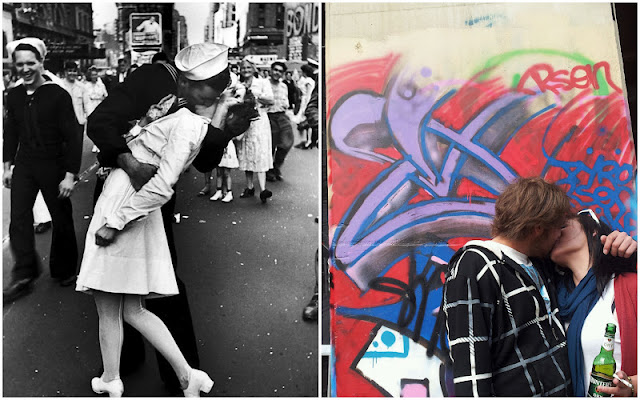I had a chat with Goodnight Wembey! when they performed at Arcade Empire as part of their Maiden Voyage Tour. This article was published in Perdeby on 3 September 2012.
 |
| PHOTO: JP Nathrass |
When Taxi Violence frontman George van der Spuy and 7th Son’s Nic
Gaud decided to embark on a side project together, they looked no
further than what has become Cape Town’s creative hub, Kill City Blues,
to carefully handpick the musos that would make up Goodnight Wembley!
They added Alex Krause (of Dead Lucky fame), Gideon de Kock (Yes
Sir!, Mister Machine and Like Knives) and Jean Labuschagne (Dead Lucky
and Bilderberg Hotel) to the already impressive list of band members and
Goodnight Wembley! was complete.
The band set sail up north on their Maiden Voyage Tour, where
Perdeby sat down to chat with them before they performed at Arcade Empire on the last leg of their journey.
The huge amount of hype surrounding this retro rock and roll outfit
since their inception has identified them as a supergroup, a label they
aren’t very fond of. “It [creates] an expectation, to some people at
least, and that was never our intention. It’s all about the music for us
and we don’t really give a f**k about anything else. We’re just trying
to make good music. People want to label it, I guess that’s inevitable,
but we definitely don’t see ourselves as better than anyone or anything
like that. We’re just happy to be playing good music together,” says
Gaud.
Goodnight Wembley!’s first single, “Time Machine”, has garnered
plenty of air play on radio stations across the country. “If I could go
back, find a way to, wouldn’t have to reminisce,” laments Van der Spuy
on the track. This nostalgic yearning for the music that Van der Spuy
and Gaud grew up on inspired them to create a soundscape that can best
be described as a rediscovery of old school grunge and rock and roll.
“We felt it would be awesome if that whole movement came back in a way,
even if we have to start it ourselves,” explains Van der Spuy.
But make no mistake in thinking that Goodnight Wembley!’s time
machine is stuck in the era of Led Zeppelin and Black Sabbath. “Our
sound is rooted in that retro stuff but I definitely think we’ve got
that sort of contemporary edge,” says bassist De Kock. “There’s
definitely three different decades in our music. There’s the 70s
Sabbath/Zeppelin influence, there’s the 90s grunge and then there’s the
more contemporary element, the ‘now’ element on top of it. I think
that’s the perfect way of describing what our music is,” adds Gaud.
 |
| PHOTO: JP Nathrass |
This mishmash of different artists and musical styles has guaranteed
that Goodnight Wembley! creates a larger-than-life stage performance.
Their sets are akin to a shot of adrenalin: raw, rapid and thrilling.
“The core of this band is five guys who love playing music and so we
really show that on stage. We really enjoy our performances, we enjoy
playing our music so if people pick that up, it’s great [because] you
feed off the crowd,” says Gaud gratefully.
The band has written ten songs, all of which will appear on the album
that they are working on, along with four tracks that they are yet to
write. “We’ve tracked the first few singles already and we’re going to
release them every six to eight weeks to kind of buy some time. We’ll go
into studio in October/November time. So the idea is really to stay on
the road until then and get into studio, record the album and then we’ll
release it beginning of next year,” says Gaud. Until then, Goodnight
Wembley! plans on regularly releasing singles to whet the appetite of
their fans. “It just puts an emphasis on our live shows and that’s our
core, that’s what we’re about,” says De Kock.
 |
| PHOTO: JP Nathrass |
With each member of the band being a part of an already
well-established and successful act, you would think that making time
for Goodnight Wembley! would be difficult. “With all our respective
acts, they are all up and running and don’t require that day-to-day
nurturing, so we have a lot of time for Goodnight Wembley! The timing
was just right for a project like this,” says Gaud. Van der Spuy
explains that with their other bands they are a lot more selective about
playing big shows rather than small ones because they have done the
ground work for each act. “That’s what’s great about this band. We can
still build an audience as we go and play in smaller venues. It’s
actually a lot of fun,” says Van der Spuy.
Their previous experience in the music industry has given Goodnight
Wembley! enough foresight to launch the band successfully. “From day
one, when we sat down starting to conceptualise this project, we laid
out our first year before we had even written songs. We had our exact
plan of attack, of how we are going to market this band, how we’re going
to launch it and how we’re going to see out the first 12 months. If I
think back to when we started 7th Son, it was just, ‘Let’s take it out
of the garage!’ There was nowhere near as much foresight as what’s been
put into this,” says Gaud.
This insight, coupled with a sound that is as refreshing as it is
rooted in the past, has ensured that Goodnight Wembley!’s maiden voyage
has been for the most part smooth sailing. As Gaud explains, “We’ve only
been a band for a couple of months, we’ve only played a couple of shows
so to be playing the shows that we have and with the people who come
out, is f***ing cool.”
























